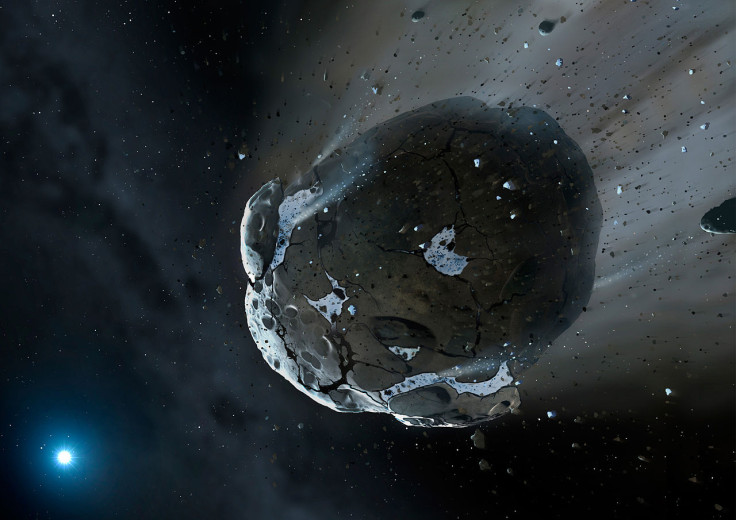Mammoth asteroid 2014-YB35 is not going to destroy life on Earth tomorrow

A massive asteroid is set to "skim past" Earth on Friday but there is no chance it will collide with the planet, causing mass destruction and wiping out life.
The potentially hazardous asteroid 2014-YB35 will pass Earth on 27 March at a distance of 0.03 AU, or 2,788,674 miles – about 11 times the distance that the moon is from our planet.
Contrary to some reports, Nasa is not on "high alert", however the asteroid will get close enough to be observed by astronomers.
The asteroid was discovered on 27 December last year by the Catalina Sky Survey: "It has an absolute magnitude of 18.9, suggesting a diameter of roughly 500m, but otherwise its physical properties are unknown," Nasa's Goldstone Asteroid Schedule said in a statement.
"2014-YB35 will approach within 0.03 AU on 27 March 2015. It will get close enough to be observed using Goldstone on 9 March and will be observable till 30 March after which it will exit the Goldstone declination window to the south."
The proximity to Earth is far further than the last close encounter in January, when an asteroid came within 745,000 miles of the planet.
Its size, however, is what makes it more impressive. It is estimated that 2014-YB35 is 500m wide, but some reports say it could be up to 1km in width. In comparison, the January asteroid was just 320m.

If 2014-YB35 did hit Earth (which it won't) the effects would be devastating, however. Bill Napier, professor of astronomy at the University of Buckinghamshire, told the Express: "With something like YB35, we are looking at a scale of global destruction, something that would pose a risk to the continuation of the planet.
"These events are however very rare, it is the smaller yet still very damaging impacts which are a very real threat."
2014-YB35 is set to have an even closer encounter with Earth in less than 20 years. It is expected to pass by the planet again in 2033 at a distance of about 2,070,000 miles.
In terms of asteroid threats to the planet, experts often note that there is little cause for concern about known objects – it is the ones we do not yet know about that pose the greatest risk.
We are aware of less than 1% of the objects of similar size to that which hit Tunguska in 1908. Launching Asteroid Day at the end of last year, astrophysicist and Queen guitarist Brian May said: "The more we learn about asteroid impacts, the clearer it becomes that the human race has been living on borrowed time."
© Copyright IBTimes 2025. All rights reserved.






















